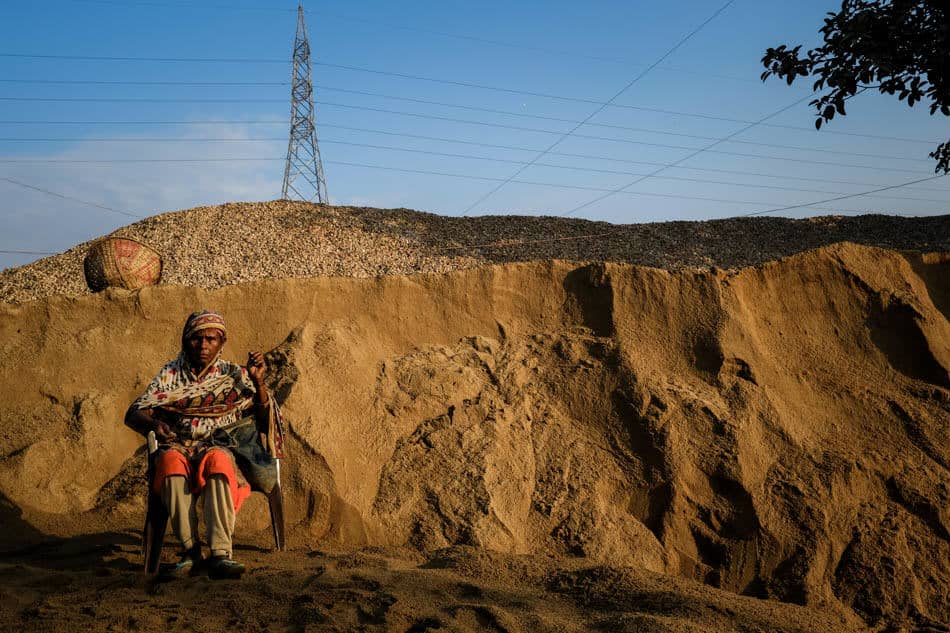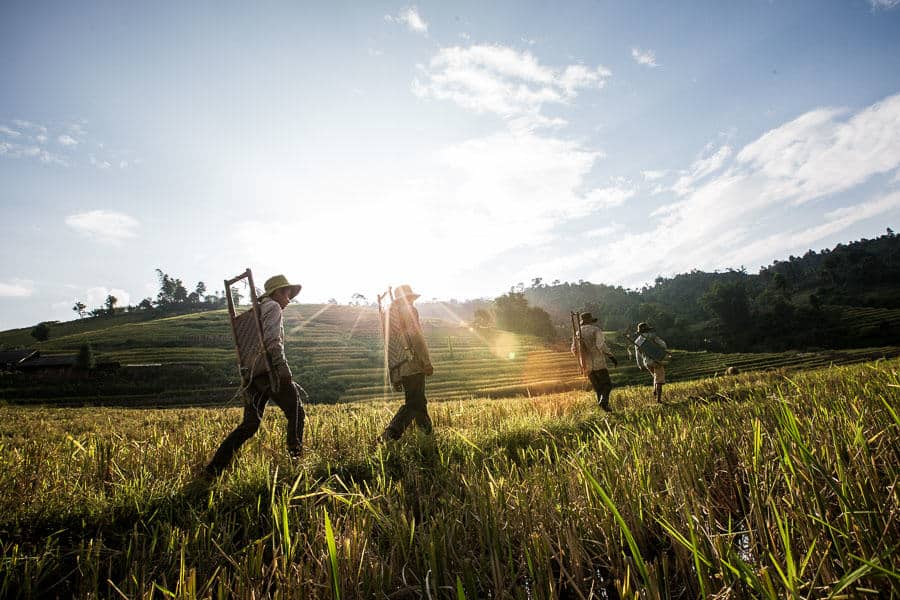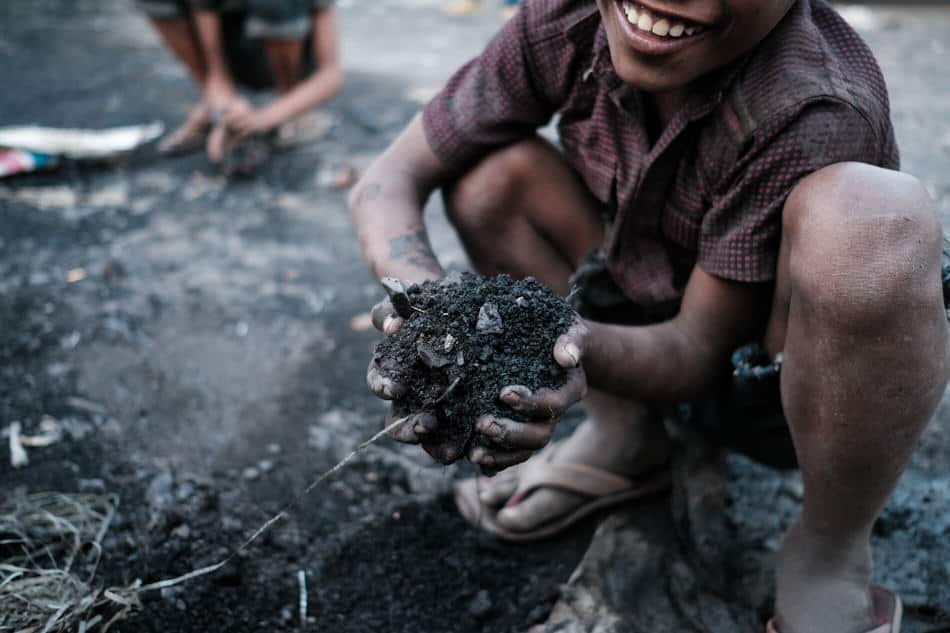Last week while I was traveling with my group into Bangladesh I received a link to an article from my friend Thierry. The article was written by Amanda Machado and talks about the ethics of taking photos when traveling to developing countries.
I read the article before heading outside and didn’t think much about it for some time. But then things started to boil in my head, and I felt like I needed to write an answer to that article. This is not about personally replying to the writer of the original article, but more to counter balance the ideas.
I am here answering as a professional photographer, but I am sure any hobbyist / enthusiast photographer experienced in traveling in developing countries would agree.
The article was written in 6 points. I will try and reply to these 6 points individually, quoting the original question asked by the author .
1- “Are my intentions for this photograph only about myself? […] Would you still travel to that country if you could not take a camera with you?”
Would I still travel if I didn’t have a camera? Well of course this is a big “No!”. What would I do then, visit museums? I am a travel photographer after all, and traveling with a camera is the definition of what I do. I travel because I take photos, and I take photos to encourage others to travel. Even if you are just a hobbyist photographer, you will travel somewhere because you know it is photogenic.
Are my intentions only about myself? Well what else could it be? Do people travel to make the locals happy? People only travel for themselves: broadening their horizons, meeting and experiencing local cultures and food, increasing their knowledge and opening their minds to diversity. Even if you travel with some NGO’s to help people facing social issues, don’t you also do it for the positive self fulfillment?
2- “Does this photo represent a stereotype of people from this country?”
A tourist coming to tourist spots will show images which are expected, the things we have seen before. A photographer or hobbyist photographer will seek something different, unique. If you feel like me, you are not looking for postcards we have seen a hundred times before, but you are chasing the light, the beauty of things. If this happens to be a woman wearing a conical hat in a green rice field of Vietnam, so be it!
But of course it all depends on what the photographer is looking for. Some people are satisfied with classic postcards with a complete lack of originality, and some are not, and will keep looking for the unique view. The real question for me is more about the concept of authenticity: stereotypes were created at a certain point in time, which means that things have changed from that time until now. Countries, people, cultures are constantly evolving (even faster in the case of developing countries).
So how do you define a stereotype, and how do you “avoid” photographing it?
3- “If a tourist in my home country took a photo of me in this same situation, would it make me feel uncomfortable?”
Do you mean taking a photo of an American man hand picking tea leaves in a mountain plantation?
This part of the article is, to me, the most questionable of all. This point of view is so ethnocentric that I wonder if the writer has ever traveled at all. This seems to come from a Westerner point of view without even thinking about the cultural differences between all countries.
For example, people of Asia don’t have the same notion of privacy as we do in the Western world. You just can’t expect people in other parts of the world to feel or think the same way you do.
So let’s reverse the argument here: If the people of Bangladesh are stopping you in the street all the time and asking if you can take their picture (and I mean all the time!), would it make you feel uncomfortable if the people of France were not doing the same? Absolutely not, because the culture is different, and the notion of privacy, personal space, is completely different and you as a traveler should understand this.
4-” Does the photo represent people with dignity?”
If you are a traveler or a travel photographer you are not looking for social issues where people may not be looking at their best, that is the job of a photojournalist. You look for images of a unique quality, you look for the light, the great composition. You are a story teller and the stories you are exposed to whilst traveling in developing nations may not always be beautiful and show people at their best.
As John Free says in one of his videos, (which is, in my opinion, an amazing video to watch if you struggle with dealing with personal space when shooting in Western countries!): “you don’t photograph the fat lady”.
I hope anyone that travels has a modicum of an education and a common sense respect for the places and people where they travel. You don’t photograph naked children and post the images online, you don’t look only for people living in misery, etc… This is common sense and if you travel or photograph without this you could find yourself in trouble very quickly.
5-” Have I tried building a relationship with the person I am photographing? ”
This is a very good point. As I mention when talking about how to approach people for photography, it is best to have created this relationship: this will give you, the photographer, a better understanding of your subject, and time to acquire a better knowledge of their surroundings. This also shows a lot of respect for your subject and will make everything easier. I would also hope this would make for a better image. As I often say, when traveling, treat people as if you were coming back to visit them the next day so they are happy to see you again.
But, it is not always possible….
6- “Have you asked permission?”
All right, this is the end of street photography. This is the end of candid travel photography. Oh, and let’s not forget candid wedding photography while I think about it.
“Excuse me lady currently carrying 20 kg of bricks on your head, do you have a minute? I would like to ask you if, by any chance, you wouldn’t mind if I take a photo of you so I can increase my portfolio, and at the same time get a few extra “likes” on Facebook?”
Here is what will happen when asking for permission to take photos: all your subjects will be posing in the most boring way, or giving you a V finger sign. Now isn’t it a stereo type? Makes for great original images!
Of course, as I mentioned previously, it is best to create an interaction, for the respect of the person we are photographing but also to improve our understanding of the situation and our composition. But to me, this will happen most of the time after the photo has been taken: showing my subject their photo, telling them how beautiful they are, having a good laugh, etc… And this is often the best part of being a travel photographer, this contact and interaction you can create with the locals by understanding the way they live and their cultural expectations.
So no, you are not being disrespectful by getting close to people and taking their photo without asking. You are a travel photographer, you have common sense and you are doing your best to not show disrespect to the people around you. You are culturally aware and you know what you can or can’t do.
Big thanks to Jeanne Wood and Kevern Meredith, both hobbyist travel photographers, for sharing these ideas with me in a boring airport lounge 🙂




Nice article Etienne .
I’ve taken pictures in a dozen countries and I have the upmost respect for the people I photograph. I have never felt guilty taking photos. It’s strange becouse in a way the photographs especially the portraits become like cherished memories.
I usually ask permission for the photo, strike up a conversation and also give them my thanks afterwords and I remember these people. Here’s the important part- the interaction -even if it’s for 30 seconds it shows respect.
I also think they remember us ,those funny foreigners , who come all that way just to meet them.
Photography brings me closer to people , opens my eyes and helps me see them and remember them . What could be better.
As Photographers, but in particular, travel photographers and photojournalists, it’s my view that the very essence of our art is showing truth through imagery. Ostensibly, by nature that means unposed.
Furthermore, I would argue that when the image is shared with the subject, it creates an opportunity for them to see themselves as they are, and not as we would have them be. This holds true in all scenarios, not just developing countries as travel destinations.
Like the response you’ve made (even if so long…) that shows what I can tell a kind of “Ethic Way” of doing your business (‘cos there’s a Business behind all that stuff).
Good to see that it’s a bit far away from Money-Makers like Yann Arthus-Bertrand and others …
Hi I agree totally with you here Etienne, well written. As a person who did a short photo shoot with you earlier this year, I could see you have a great passion and care greatly for the locals who appreciate your presence in their villages.
Everyone’s an expert. Everyone’s a critic. Glad you set them straight, Etienne.
Why just developing countries? Maybe because the author is a Westerner who believes that her Western ethics can save developing countries. Points 4 & 5 are best understood if you actually live in a so-called developing country. Etienne, you have the advantage here. Personally, I follow the example of local photographers and I always show people the photo after taking it.
Yes I agree with you here, there is a bit of a condescending feeling in the original article, which really is what pissed me off after reading it. Anyway, a few years of traveling should fix the problem 🙂
Well written Étienne !
My take is that the travel photographer and the photojournalists are both passionate about life; there is beauty in what they do. In our modern world they epitomize and share humanity. They show life as it is, as they see it. Their records are usually sensational, candid, enticing leading many to the desire of venturing out, off the beaten track and meet the world.
The Matador article is rather weird, self-centered as well as their numerous lines of articles “Don’t go there is you don’t understand these n rules”… They don’t advise or suggest, they rule with dictatorial style which is not the same thing… There is no subtlety to their approach… With insight it is perhaps directed at some rude and lightly educated people who have never travelled previously and perhaps written by people who may be rather light and didn’t venture out much either.
I would still travel if I did not have a camera but I would feel a loss not to be able to record some of my travel and convey my admiration of local people’s humanity. Sharing my pictures is enjoyable and can entice my friends and family to travel too. The writer of the article is also mentioning the “White Savior Complex”. I am a colored person originally from the Caribbean where African were imported as slaves so what should I make of that White Savior’s Complex ? Rubbish ! I believe that travel photography and photojournalism is great as it shows our world’s beauty, wealth, ingenuity and diversity irrespective of wether countries are developed, developing or undeveloped… First and foremost I feel that the travel photographer as well as the photojournalist are humanists seeking to record and report on the beauty of humanity. Is there anything wrong celebrating humanity ? of which we are all part by the way, wether or not we are caught on a picture by a travel photographer from other climes whilst buying toilet paper in a supermarket. I personally regularly buy toilet paper as many others may too so be it but now I am wondering is there anything wrong, degrading which I could have missed with this ?
I really like this article and your no nonsense responses to the other persons questions. Your advise is right on the money. Thanks for sharing.
thanks Rich!